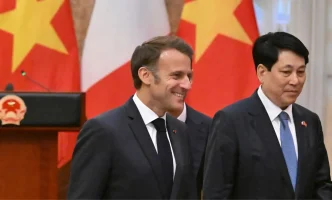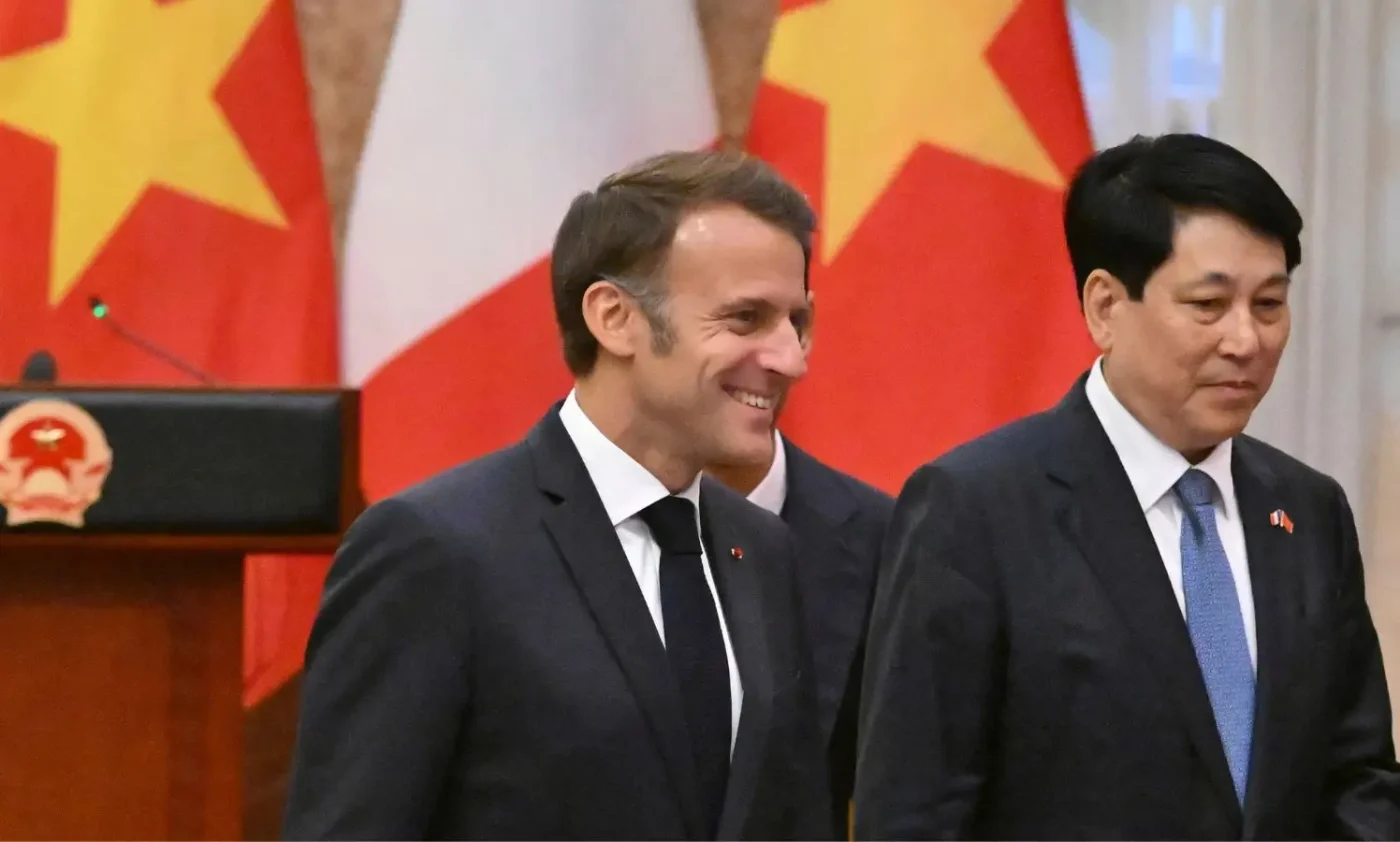Ha Noi – French President Emmanuel Macron is set to embark on a significant state visit to Vietnam from May 25 to 27, 2025, at the invitation of Vietnamese State President Lương Cường. Announced by the Vietnamese Ministry of Foreign Affairs, this visit underscores a growing partnership between the two nations, with a clear focus on economic collaboration and cultural exchange. As France seeks to bolster its influence in Southeast Asia, Macron’s trip could mark a pivotal moment in Franco-Vietnamese relations, especially amid global economic uncertainties.
A Strategic Partnership in Focus
The state visit comes on the heels of Macron’s recent efforts to attract foreign investment to France, as evidenced by his prominent role at the “Choose France Summit” held at the Chateau de Versailles near Paris on May 19, 2025. During the summit, Macron actively courted international investors, signaling France’s ambition to position itself as a hub for global business. Now, turning his attention to Vietnam, the French president appears poised to reciprocate by exploring investment opportunities in one of Southeast Asia’s fastest-growing economies.
Vietnam, with its robust economic growth and strategic location, has become an attractive destination for European nations seeking to diversify their trade partnerships beyond traditional markets. The country’s GDP growth has consistently outpaced many regional peers, driven by a burgeoning manufacturing sector and increasing foreign direct investment. France, already a significant player in Vietnam through companies like Airbus and TotalEnergies, sees the potential for deeper ties in sectors such as technology, infrastructure, and sustainable energy.
According to analysts, Macron’s visit may prioritize discussions on trade agreements and joint ventures. “Vietnam offers a dynamic market for French expertise in high-tech industries and green energy” said a Paris-based economist specializing in Southeast Asia. “This visit could pave the way for contracts that benefit both sides.” While no specific deals have been confirmed ahead of the visit, speculation abounds about potential collaborations in urban development and renewable energy projects, areas where Vietnam has expressed ambitious goals.
Historical Ties and Modern Ambitions
The relationship between France and Vietnam is rooted in a complex history, marked by colonial ties that ended in the mid-20th century. Since then, the two nations have worked to redefine their partnership through diplomacy and economic cooperation. France has been a vocal supporter of Vietnam’s integration into global markets, notably backing its membership in the European Union-Vietnam Free Trade Agreement (EVFTA), which came into effect in 2020. The EVFTA has already boosted bilateral trade, with Vietnamese exports to France—ranging from textiles to electronics—seeing significant growth.
Macron’s visit is expected to build on this momentum. Meetings with Vietnamese leaders, including State President Lương Cường, are likely to address not only economic matters but also shared challenges such as climate change and regional security. Vietnam, which faces rising sea levels and environmental degradation, could benefit from French expertise in sustainable development. In return, France may seek Vietnam’s support in navigating geopolitical tensions in the Indo-Pacific, where both nations have stakes in maintaining stability.
Beyond government-level talks, cultural diplomacy will play a key role during the visit. Macron, accompanied by his spouse, is expected to participate in events highlighting the deep cultural connections between the two countries. From the French influence on Vietnamese architecture in Ha Noi to the thriving Vietnamese diaspora in France, these shared elements provide a foundation for mutual understanding. Such engagements, while symbolic, often lay the groundwork for stronger economic and political ties.
Economic Stakes in a Global Context
The timing of Macron’s visit is noteworthy, as both France and Vietnam navigate a volatile global economy. France, grappling with domestic challenges such as inflation and labor unrest, views Southeast Asia as a region of opportunity to offset uncertainties in Europe. Vietnam, meanwhile, is keen to diversify its economic partnerships amid concerns over reliance on larger neighbors like China. The potential for French investment in Vietnam’s infrastructure—such as high-speed rail projects or smart city initiatives—could provide a much-needed boost to the country’s development plans.
One area of particular interest is Vietnam’s renewable energy sector. With the country aiming to transition away from coal and achieve net-zero emissions by 2050, French companies with expertise in wind and solar energy could find lucrative opportunities. A recent report by the Vietnamese Ministry of Industry and Trade estimated that the country needs investments of over 100 billion Vietnamese Dong (US$4 billion) annually to meet its clean energy targets. If confirmed, French involvement in such projects could be a centerpiece of Macron’s visit.
However, challenges remain. Vietnam’s regulatory environment and bureaucratic hurdles have historically deterred some foreign investors. While the government has made strides in improving the ease of doing business, French companies may seek assurances on issues like intellectual property protection and contract enforcement. Macron, known for his pragmatic approach to international relations, is likely to address these concerns directly with Vietnamese officials.
Public Sentiment and Regional Implications
In Vietnam, the announcement of Macron’s visit has generated a mix of curiosity and optimism. Many residents of Ha Noi, where much of the visit’s activities will take place, see it as a sign of Vietnam’s growing stature on the world stage. “It’s good to have leaders from faraway countries come here” said a local shopkeeper near the city’s historic Old Quarter. “It means more business, more jobs.” Others, however, remain cautious, recalling past foreign investments that promised much but delivered little in terms of tangible benefits for ordinary citizens.
Regionally, Macron’s visit could have broader implications. As France seeks to strengthen its footprint in Southeast Asia, other European nations may follow suit, intensifying competition for influence in the region. At the same time, Vietnam’s balancing act—maintaining cordial relations with major powers like the United States, China, and now France—will be closely watched. If successful, this visit could serve as a model for how smaller nations can leverage historical ties to secure modern economic gains.
Looking Ahead
As Emmanuel Macron prepares to step onto Vietnamese soil, the stakes are high for both nations. For France, the visit represents a chance to cement its role as a key partner in Vietnam’s development, while for Vietnam, it offers an opportunity to attract investment and expertise from a major European economy. Whether these ambitions translate into concrete outcomes remains to be seen, but the groundwork laid during these three days in Ha Noi could shape the trajectory of Franco-Vietnamese relations for years to come.
With global eyes on this diplomatic engagement, questions linger about the specific agreements that might emerge and their impact on Vietnam’s economic landscape. As the visit unfolds, both leaders will be under scrutiny to deliver results that match the promise of this historic encounter.
















